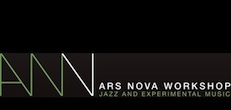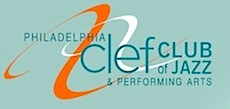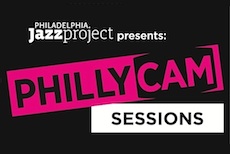Welcome to Philadelphia Jazz Project
Philadelphia Songbook Concert Volume 1
Jan 29, 2014
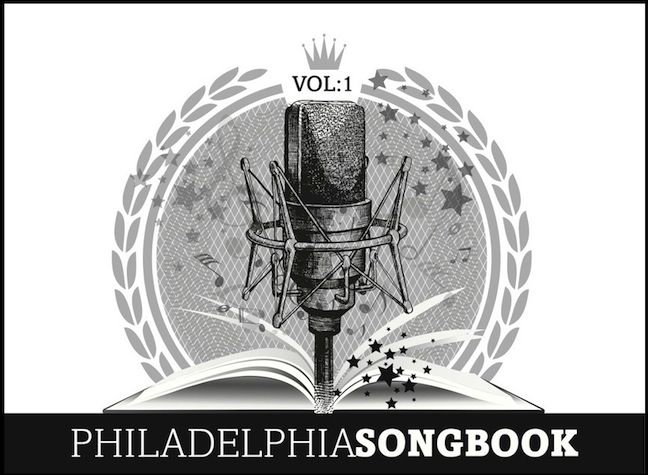
The Philadelphia Jazz Project seeks the creation of a local songbook in the tradition of the Great American Songbook, which celebrates the most important and influential American popular songs of the 20th century. The Philadelphia Songbook Concerts will include Jazz standards and popular songs penned and/or performed by local artists.
Philadelphia Songbook Concert Volume 1 will feature performances of compositions by John Coltrane, Lee Morgan, Benny Golson, James Mtume, Hall & Oates, Norman Connors, Blue Magic and Jill Scott. Musical directors Alfie Pollitt and Denise King are joined by a team of local performers including Barbara Walker, Ella Gahnt, Pablo Batista, Tony Jones, Pete Chavez, Webb Thomas and others as they take us on a fascinating musical journey.
Philadelphia Songbook Concert Volume 1
Saturday, February 8, at 7:30pm
Temple Performing Arts Center
1837 N Broad St, Philadelphia, PA 19122
Admission is free. but you must RSVP.
RSVP via Eventbrite by clicking here.
or RSVP at rsvp@philajazzproject.org
For more information, call 267-259-3802
http://www.philajazzproject.org
Philadelphia Songbook musicians include...
Alfie Pollitt: Musical Director/Pianist
Denise King: Vocal Director
Anthony DeCarlo: Guitar
Tony Jones: Bass
Webb Thomas: Drums
Pablo Batista: Percussion
Charles Washington: Trumpet
Aaron Goode: Trombone
George Bussey: Alto Sax
Pete Chavez: Tenor Sax
Christopher Welte: Baritone Sax & Bass Clarinet
Ella Gahnt: Vocalist
Barbara Walker: Vocalist
Carol Harris: Vocalist
Bethlehem: Vocalist
Marian Salaam: Vocalist
Kevin Valentine: Vocalist
About The Songs:
Written by Dr. Diane Turner
Curator: Temple University's Charles L. Blockson Afro American Collection
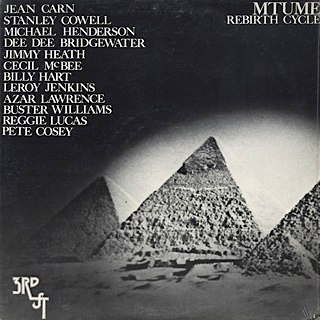 Sais was written by Percussionist Jazz, Rhythm and Blues, Soul and Funk musician, Singer-Songwriter, Composer for Film and Television, Arranger, Radio Personality, Producer, Educator and Activist, James Mtume who was born in Philadelphia, Pennsylvania in 1947. Sais, a sidelong composition, appeared on his third album Rebirth Cycle recorded in 1974 and released in 1977 on the Third Street label. The album has been described as “a fusion of afro-centric deep jazz and psychedelic spacey funk.” Sais is the Egyptian school of higher learning which Greek and Western philosophy developed. Sais included the vocals of Jean Carn and Dee Dee Bridgewater. The song also included poet Muktar Mustapha and jazz greats like Buster Williams, Cecil McBee, Stanley Cowell, Reggie Lucas, Diedre Johnson, John Stubblefield, Jimmy Heath, Azar Lawrence, Andre Strobert, Bill Hart, and Leroy Jenkins. Versions of Sais were recorded by Sonny Rollins and Lonnie Liston Smith and the Cosmic Echoes.
Sais was written by Percussionist Jazz, Rhythm and Blues, Soul and Funk musician, Singer-Songwriter, Composer for Film and Television, Arranger, Radio Personality, Producer, Educator and Activist, James Mtume who was born in Philadelphia, Pennsylvania in 1947. Sais, a sidelong composition, appeared on his third album Rebirth Cycle recorded in 1974 and released in 1977 on the Third Street label. The album has been described as “a fusion of afro-centric deep jazz and psychedelic spacey funk.” Sais is the Egyptian school of higher learning which Greek and Western philosophy developed. Sais included the vocals of Jean Carn and Dee Dee Bridgewater. The song also included poet Muktar Mustapha and jazz greats like Buster Williams, Cecil McBee, Stanley Cowell, Reggie Lucas, Diedre Johnson, John Stubblefield, Jimmy Heath, Azar Lawrence, Andre Strobert, Bill Hart, and Leroy Jenkins. Versions of Sais were recorded by Sonny Rollins and Lonnie Liston Smith and the Cosmic Echoes.
James Mtume is the son of Jazz Saxophonist, Composer and Educator Jimmy Heath. In addition to recording and touring with Miles Davis, he worked on projects with Davis from 1971 to 1975. Mtume also worked with Sonny Rollins, Freddie Hubbard and Joe Henderson. He was featured on the records of the Heath Brothers, Sonny Rollins, Herbie Hancock, Joe Henderson, Keith Jarrett, Duke Ellington, McCoy Tyner, Freddie Hubbard and Lonnie Liston Smith. In 1978, Mtume formed his band with Reggie Lucas, who went on to produce Madonna's first Album, "Celebrate!," keyboardist, Hubert Eaves, who produced "D Train," drummer, Howard King, guitarist, Edward "TREE" Moore, bassist Basil Fearrington. and vocalist, Tawatha Agee.
Lucas, Ray Johnson, Phil Fields and Tawatha Agee under the name Mtume. One of the group’s most popular songs became Juicy Fruit. During the 1980’s, Mtume formed a songwriting partnership with guitarist Reggie Lucas. Over the years, James Mtume worked on more than 80 albums. He is a Grammy award winning producer. He has worked with and written notable hits for other artists such as Donny Hathaway, Teddy Pendergrass, Stephanie Mills, Phyllis Hyman, Roberta Flack, D’Angelo and Mary J. Blige, to mention a few. He continues his career as a social and political activist and is a much saw after speaker.
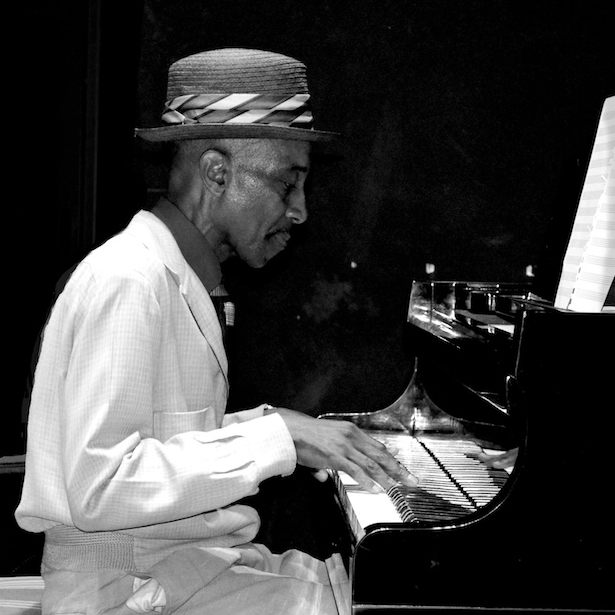 I’ll Just Sing You a Song was composed by Pianist, Composer, Producer, Arranger, and Educator, Alfred “Alfie” Politt in the 1980’s. His composition is a torch song that he wrote as an inspirational piece for love and healing. He penned, 15th Street, his first song in 1958. Over his career, Pollitt has written more than 500 songs. Born in Bryn Mawr, Pennsylvania in 1943, Pollitt started playing piano at the age of three. He is a versatile musician that performs jazz, Latin, R & B and other music genres. His music, composition, style and performance are influenced by John Coltrane, Horace Silver, Joe Loco, Bud Powell, McCoy Tyner, Sun Ra, Jimmy Smith, Elvin Jones, Cecil Taylor, Barry Harris, Bobby Timmons, Herbie Hancock, Jimmie Merritt, Mtume, Kashif, Leon Sylvers, Alfredo, Leon Huff, Stevie Wonder and Prince.
I’ll Just Sing You a Song was composed by Pianist, Composer, Producer, Arranger, and Educator, Alfred “Alfie” Politt in the 1980’s. His composition is a torch song that he wrote as an inspirational piece for love and healing. He penned, 15th Street, his first song in 1958. Over his career, Pollitt has written more than 500 songs. Born in Bryn Mawr, Pennsylvania in 1943, Pollitt started playing piano at the age of three. He is a versatile musician that performs jazz, Latin, R & B and other music genres. His music, composition, style and performance are influenced by John Coltrane, Horace Silver, Joe Loco, Bud Powell, McCoy Tyner, Sun Ra, Jimmy Smith, Elvin Jones, Cecil Taylor, Barry Harris, Bobby Timmons, Herbie Hancock, Jimmie Merritt, Mtume, Kashif, Leon Sylvers, Alfredo, Leon Huff, Stevie Wonder and Prince.
During his music career, Alfie has performed with a long list of jazz greats. They include Slide Hampton, Carlos Garnett, Art Blakey, Philly Joe Jones, Gregory Herbert, Earl and Carl Grubbs, Sunny Murray, Bootsie Barnes, J.J. Johnson, Odean Pope, Rufus Harley, Sonny Fortune, Byard Lancaster, Archie Shepp, Lex Humphries, Edgar Bateman, Rashid Ali, Ron Everett, John Gilmore, Khan Jamal, Lee Morgan, Rashan Roland Kirk, Norman Connors, Johnny Hartman, Bobbie Humphries, Bill Barron, John Blake, Bob Pollitt, Harry “Sweets” Edison, Jimmy Garrison, Donald Byrd, Reggie Lucas, Bobby Durham and others.
Pollitt has also worked with R & B greats such as Barbara Mason, Billy Paul, The Blue Notes, Sister Sledge, The Tymes, The Majors, Stephanie Mills, and Lloyd Price’s Big Band. He was the keyboard player on Teddy Pendergrass’ platinum selling album Teddy Coast to Coast Live as well as Pendergrass’ album This One’s for You. In 1980, Alfie organized the R & B band, OUCH and Alfie Pollitt and his All-Star Musical Friends in 1985. As an educator, Alfie teaches music and conducted songwriting workshops in New Jersey and correctional facilities in Pennsylvania, including Holmesburg, House of Corrections and Graterford Prisons. In addition, both of his bands performed concerts at the correctional facilities. Alfie’s lifetime goal has been to maintain his positive message in music universally, in his own words, “By the Divine permission and help of the Almighty Creator.”
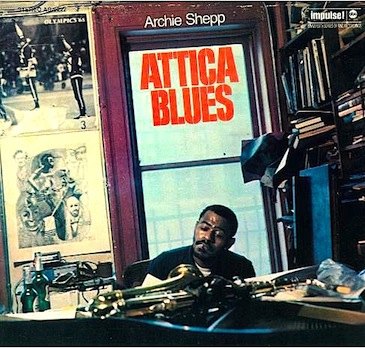 Quiet Dawn was recorded by Jazz Saxophonist, Composer, Actor, Playwright and Educator Archie Shepp on his album Attica Blues in 1972 on the Impulse! Records, a tribute to the Attica rebellion. It was his first successful large-ensemble project where he performs many different styles of Black music. The personnel on the album included many prominent jazz musicians such as Cal Massey, Marion Brown, John Blake, Dave Burrell, Walter Davis, Jr., Jimmy Garrison, Billy Higgins, Romulus Franceschini, and others. Recorded months after the Attica Prison revolt where 33 inmates and 10 hostages were murdered by authorities, the album expressed his political sentiment. Quiet Dawn was composed by Jazz Trumpeter Cal Massey, who wrote the music and lyrics of the song. It was the last piece on Attica Blues sung by Massey’s seven-year-old daughter Waheeda Massey.
Quiet Dawn was recorded by Jazz Saxophonist, Composer, Actor, Playwright and Educator Archie Shepp on his album Attica Blues in 1972 on the Impulse! Records, a tribute to the Attica rebellion. It was his first successful large-ensemble project where he performs many different styles of Black music. The personnel on the album included many prominent jazz musicians such as Cal Massey, Marion Brown, John Blake, Dave Burrell, Walter Davis, Jr., Jimmy Garrison, Billy Higgins, Romulus Franceschini, and others. Recorded months after the Attica Prison revolt where 33 inmates and 10 hostages were murdered by authorities, the album expressed his political sentiment. Quiet Dawn was composed by Jazz Trumpeter Cal Massey, who wrote the music and lyrics of the song. It was the last piece on Attica Blues sung by Massey’s seven-year-old daughter Waheeda Massey.
Archie Shepp was born in Fort Lauderdale, Florida in 1937. He grew up in Philadelphia, Pennsylvania where he learned to play the piano and the clarinet as well as the tenor, soprano and alto saxophones. He attended Germantown High School. From 1955 to 1959, Shepp studied drama at Goddard College in Vermont. During the sixties, he performed with Lee Morgan, Cal Massey, Jimmy Heath, John Coltrane, Cecil Taylor, Bill Dixon, Don Cherry, John Tchicai, Grachan Moncur III, Beaver Harris and others. He became part of the avant-garde movement. He promoted the ideology of Black cultural nationalists who concentrated on creating arts for the people. He was appointed professor of music at University of Massachusetts at Amherst in 1973. He recorded with Bobby Hutcherson, Barre Philips, Joe Chambers, Max Roach, Horace Parlan and others.
Quiet Dawn was written by Jazz Trumpeter, Composer and Black Nationalist Cal Massey (1928-1972). Massey wrote the composition for Duke Ellington, who he met in Paris in 1969. Quiet Dawn was featured on Archie Shepp’s album Attica Blues (1978), with whom he played with from 1969 to 1972. Born in Philadelphia, Pennsylvania, he studied trumpet with Freddie Webster. He played in big bands lead by Jay McShann, Jimmy Heath and Billie. He formed a group that included Jimmy Garrison, McCoy Tyner, and Tootie Heath. On occasion, John Coltrane and Donald Byrd played with the group on guest appearances. In addition to Shepp, Massey compositions were recorded by John Coltrane, Freddie Hubbard, Lee Morgan, Philly Joe Jones, Jackie McLean and others. Massey became good friends with Coltrane who recorded a number of his compositions such as The Damned Don’t Cry that appears The Complete Africa/Brass Sessions: The John Coltrane Quartet album. He also formed a group, RoMas Orchestra, with Romulus Franceschini. Massey’s contributions also include his last work a musical play entitled Lady Day: A Musical Tragedy.
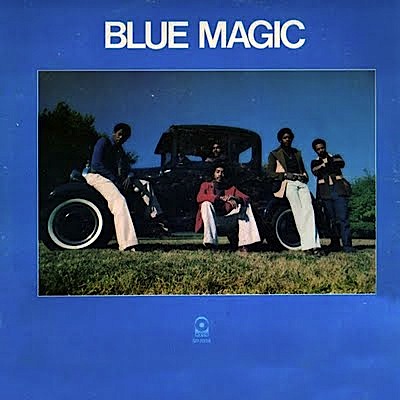 Stop to Start, written by Allan Wayne Felder and Jim Grant, was recorded in 1974 by R & B Soul Vocal Quintet Blue Magic and released on their debut album Blue Magic by Atco Records. The song was the group’s third single release, arranged and produced by Norman Harris. Stop to Start rose to the top of the R & B charts through crossover success. In January 1974, the song reached number 45 in the US Billboard 200 and number 4 on the US R & B Charts.
Stop to Start, written by Allan Wayne Felder and Jim Grant, was recorded in 1974 by R & B Soul Vocal Quintet Blue Magic and released on their debut album Blue Magic by Atco Records. The song was the group’s third single release, arranged and produced by Norman Harris. Stop to Start rose to the top of the R & B charts through crossover success. In January 1974, the song reached number 45 in the US Billboard 200 and number 4 on the US R & B Charts.
Blue Magic, a five-member group, was organized in 1972 by Theodore “Ted” Mills (lead tenor and arranger), who was a native of Philadelphia and a former Temple University student. Members include Vernon Sawyer (baritone, second tenor and clothing designer), Wendell Sawyer (baritone), Richard Pratt (bass baritone) and Keith Beaton (second tenor and choreographer). Blue Magic is known for their style of incorporating the Philadelphia Sound with the 1950’s old school Philly singing style as well as their choreography. Some of their other popular singles included Sideshow, Spell, What’s Come Over Me and Three Ring Circus. During 1975, Blue Magic received the honors of best new group, earning two Ebony Awards. They appeared on television shows like Show Train, The Jerry Blavat Show, Dancin’ On Air and The Mike Douglas Show. Blue Magic appeared on stages with performers like Marvin Gaye, Gladys Knight and the Pips, The Temptations, The Spinners, The Stylistics, The Jacksons, The Commodores, Mick Jagger and others.
Songwriter and producer Allan Wayne Felder (1943-1999) co-wrote the composition Stop to Start with Bassist and Songwriter Jim Grant which was popularized by Blue Magic. Felder was born in Philadelphia and graduated from Simon Gratz High School. He enlisted in the U.S. Navy during the Vietnam War. In 1968, he co-wrote his first song with Guitarist Tommy Keith, recorded by Honey and the Bees that included his sister Nadine White as the lead singer. He also collaborated with Norman Harris, writing songs such as Walk Right Up to the Sun and Armed and Extremely Dangerous as well as collaborations with Bunny Sigler and Ron Baker. Felder worked as staff writer and producer for Gamble-Huff-Bell Productions where he worked with Teddy Pendergrass, The O’Jays, Nancy Wilson, Dusty Springfield, Lou Rawls, and Harold Melvin. During his career, he wrote and co-wrote songs that went gold such as Double Exposure and Disco Infernal, to name a few.
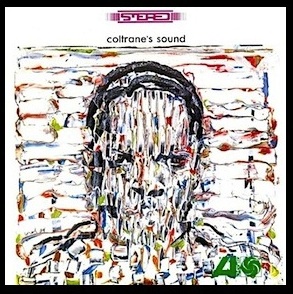 Central Park West was written by Jazz Saxophonist and Composer John Coltrane (1926-1967) and recorded on his album Coltrane’s Sound in 1964 on Atlantic. The album was recorded during the sessions for My Favorite Things and released in 1964. The personnel on this album included McCoy Tyner, Steve Davis, Elvin Jones and Coltrane. The album was reissued by Rhino Records in 1999 as part of Atlantic 50th Anniversary Jazz Gallery Series. Born in Hamlet, North Carolina, he spent his early childhood in High Point, North Carolina. He began the study of clarinet at the age of twelve. Coltrane moved to Philadelphia in 1943 where he spent his musical formative years. He studied at the Ornstein School of Music and played his first professional performances in 1945 in local clubs and bars in Philadelphia. That same year, he entered the U.S. Navy and played with Navy musicians where he was informally recorded in 1946. After being discharged during the late 1940’s, he played with the Joe Webb Blues Band, King Kolax, Jimmy Heath’s Big Band, Eddie “Cleanhead” Vinson, William “Red” Garland and Dizzy Gillespie’s big band.
Central Park West was written by Jazz Saxophonist and Composer John Coltrane (1926-1967) and recorded on his album Coltrane’s Sound in 1964 on Atlantic. The album was recorded during the sessions for My Favorite Things and released in 1964. The personnel on this album included McCoy Tyner, Steve Davis, Elvin Jones and Coltrane. The album was reissued by Rhino Records in 1999 as part of Atlantic 50th Anniversary Jazz Gallery Series. Born in Hamlet, North Carolina, he spent his early childhood in High Point, North Carolina. He began the study of clarinet at the age of twelve. Coltrane moved to Philadelphia in 1943 where he spent his musical formative years. He studied at the Ornstein School of Music and played his first professional performances in 1945 in local clubs and bars in Philadelphia. That same year, he entered the U.S. Navy and played with Navy musicians where he was informally recorded in 1946. After being discharged during the late 1940’s, he played with the Joe Webb Blues Band, King Kolax, Jimmy Heath’s Big Band, Eddie “Cleanhead” Vinson, William “Red” Garland and Dizzy Gillespie’s big band.
In the 1950’s, Trane worked with Johnny Hodges, Daisy Mae and the Hepcats, Jimmy Smith, Bill “Mr. C” Carney’s Hi-Tone as well as his 12-piece band, Bull Moose Jackson and others. Coltrane affectionately called “Trane” or “Ya Ya” was highly respected by other musicians. Miles Davis once said, “Trane was a beautiful person, a real sweet kind of guy, all of that. So you really couldn’t help loving him and caring about him, too.”
In addition to leading his famous groups that included musicians such as McCoy Tyner, Elvin Jones, Jimmy Garrison, Eric Dolphy, Steve Davis, Reggie Workman and Art Davis, Coltrane recorded with Dizzy Gillespie, Earl Bostic, Gray Crosse, Johnny Hodges, Elmo Hope, Miles Davis, Paul Chambers, Hank Mobley, Sonny Rollins, Leonard Bernsteni, Tadd Dameron, Johnny Griffin, Thelonius Monk, Mal Waldron, Sonny Clark, Red Garland, Ray Draper, Art Blakey, Gene Ammons, Kenny Burrell, Michel Legrand, Wilbur Harden, George Russell, Cannonball Adderley, Don Cherry, and Duke Ellington.
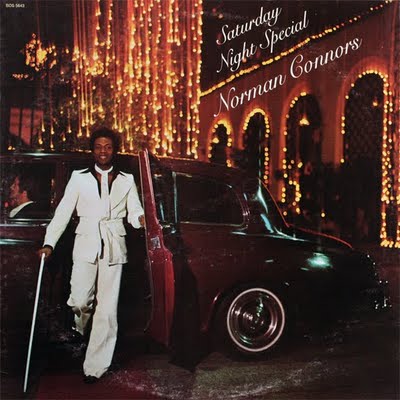 Valentine Love was written by Bass Guitarist, Songwriter, Producer and Singer Michael Henderson. In 1975, the song was released as a single performed by Norman Connors on Buddah Records, Inc. featuring vocalists Jean Carne and Michael Henderson and hit the charts. Valentine Love has been sampled by Nas, G.A.T. and Noel Gourdin. Born in Yazoo City, Mississippi in 1951, Henderson’s mother took him to clubs when he was the age of three where he would sing and dance. At the age of twelve, he auditioned at a Detroit studio, told that he couldn’t sing and started to play bass guitar. He began his career as a session musician where he played with Diana Ross & The Supremes, Marvin Gaye, and Temptations and The Four Tops. One of his primary influences at Motown was bass guitarist James Jameson. He toured with Stevie Wonder’s band which he left to play bass with Miles Davis during the early 1970’s along with Herbie Hancock, John McLaughin, Billy Cobham and Keith Jarrett. He appeared on Davis’ albums A Tribute to Jack Johnson, Pangaea, and Live-Evil. Henderson has played and recorded with Stevie Wonder, Aretha Franklin, Doctor John, and the Dramatics, to name a few.
Valentine Love was written by Bass Guitarist, Songwriter, Producer and Singer Michael Henderson. In 1975, the song was released as a single performed by Norman Connors on Buddah Records, Inc. featuring vocalists Jean Carne and Michael Henderson and hit the charts. Valentine Love has been sampled by Nas, G.A.T. and Noel Gourdin. Born in Yazoo City, Mississippi in 1951, Henderson’s mother took him to clubs when he was the age of three where he would sing and dance. At the age of twelve, he auditioned at a Detroit studio, told that he couldn’t sing and started to play bass guitar. He began his career as a session musician where he played with Diana Ross & The Supremes, Marvin Gaye, and Temptations and The Four Tops. One of his primary influences at Motown was bass guitarist James Jameson. He toured with Stevie Wonder’s band which he left to play bass with Miles Davis during the early 1970’s along with Herbie Hancock, John McLaughin, Billy Cobham and Keith Jarrett. He appeared on Davis’ albums A Tribute to Jack Johnson, Pangaea, and Live-Evil. Henderson has played and recorded with Stevie Wonder, Aretha Franklin, Doctor John, and the Dramatics, to name a few.
Jazz Drummer, Composer, Arranger and producer Norman Connors recording of Valentine Love was his first successful R & B recording that hit the charts. He recorded on Buddah, Arista, Capitol, Motown and Shanachie Records. Born in Philadelphia in 1947, he became interested in jazz drumming while in middle school. He went on to study music at Temple University and Juilliard. While in New York, he played Marion Brown, Sun Ra and Jackie McLean. His first recording date was on Archie Shepp’s album Magic of JuJu, released in 1967. He also played and recorded with Pharaoh Sanders and Sam Rivers. In 1972, he formed his own group, signed with Cobblestone Records and released his own band’s first recording. Over the years, his sidemen have included Eddie Henderson, Gary Bartz, Carlos Garnett and Herbie Hancock as well as vocalist Dee Dee Bridgewater. He has produced many recordings, collaborating with artists and producers such as Phyllis Hyman, Al Johnson, Norman Brown and Marion Meadows.
Jazz and R & B Vocalist Jean Carne was born in 1947 in Atlanta, Georgia. Her parents saw her musical talents and she became a member of her church choir at the age of four. She learned to play piano, clarinet and bassoon. Upon graduation from Booker T. Washington High School in 1965, she attended Morris Brown College on a scholarship. She began her music recording career with Jazz Pianist Doug Carn, her husband and founder of Black Jazz Records. In 1975, Carn was featured on Valentine Love. In 1976, she signed a contract with Kenny Gamble and Leon Huff’s Philadelphia International Records and her debut album Jean Carn was released in 1977. After the recording four albums with Philadelphia International, she went to Motown Records in 1982 where she recorded one album and moved to Omni Records. Her album Closer Than Close was produced by Saxophonist Grove Washington Jr. (1943-1999) and the title track hit number 1 on the R & B charts. Still active in music, she has recorded more than nine albums. She has worked with many artists, producers and songwriters from Dizzy Gillespie to Phyllis Hyman.
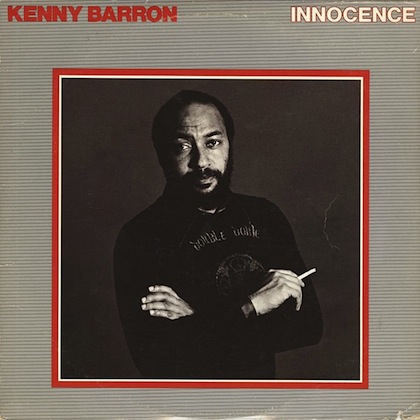 Sunshower was written by Jazz Pianist, Composer and Educator Kenneth “Kenny” Barron. Born in Philadelphia on June 9, 1943, Barron started playing piano at the age of six. His influences include his brother Bill Barron, Tommy Flanagan, Hank Jones, Wynton Kelly and Thelonius Monk. His brother Jazz saxophonist Bill Barron helped him get his first professional engagement with the Mel Melvin Orchestra at the age of fourteen. While attending Germantown High School, he also played with other musicians like “Philly Joe” Jones, Sam Reed, Jimmy Heath and Yusef Lateef. Around 1960, he met McCoy Tyner in Philadelphia.
Sunshower was written by Jazz Pianist, Composer and Educator Kenneth “Kenny” Barron. Born in Philadelphia on June 9, 1943, Barron started playing piano at the age of six. His influences include his brother Bill Barron, Tommy Flanagan, Hank Jones, Wynton Kelly and Thelonius Monk. His brother Jazz saxophonist Bill Barron helped him get his first professional engagement with the Mel Melvin Orchestra at the age of fourteen. While attending Germantown High School, he also played with other musicians like “Philly Joe” Jones, Sam Reed, Jimmy Heath and Yusef Lateef. Around 1960, he met McCoy Tyner in Philadelphia.
In 1961, Barron moved to New York where he worked with James Moody, Roy Haynes and Lou Donaldson. From 1962 to 1966, he played with Dizzy Gillespie, after leaving Gillespie’s band, Barron played engagements with Stanley Turrentine, Lee Morgan, Freddie Hubbard, Milt Jackson and Buddy Rich. During the 1960’s, he recorded with James Moody, Dizzy Gillespie, Yusef Lateef, Booker Ervin, Bobby Hutcherson and others. In 1972, Barron rejoined Yusef Lateef. In 1973, Barron was appointed as a professor of music at Rutgers University, New Brunswick, New Jersey. The same year, Barron’s debut solo album Sunset to Dawn was released. Before retiring in 2000, he taught and mentored jazz students such as Regina Bell, Terrence Blanchard and David Sanchez.
From 1975 to 1982, he played and/or recorded with many jazz greats such as Ron Carter, Eddie Harris, Toots Thielman, Sonny Stitt, Frank Foster, Bill Barron, Joe Henderson, “Sweets” Edison, Benny Carter, Joe Williams, Eddie “Lockjaw” Davis, and others. In 1983, Barron organized the group Sphere with Buster Williams, Ben Riley and Charlie Rouse, who was replaced by Gary Bartz after his death. Over the years, he also collaborated with Stan Getz as well as played and/or recorded with Ella Fitzgerald, Woody Shaw, Earl and Carl Grubbs, Marion Brown, Chico Freeman, Johnny Coles, Bobby Watson, Jimmy McGriff, Gerald Wilson, Alvin Baptiste, Carmen Lundy, Sonny Fortune, John Blake, Elvin Jones and a host of other prominent jazz musicians.
Barron’s original composition Sunshower, a favorite among jazz musicians and jazz enthusiasts, appeared on his album Innocence in 1978 on Wolf Records. The personnel for the composition included Buster Williams, Ben Riley, Rafael Cruz, Sonny Fortune and Barron. It has been recorded by jazz musicians like Ron Carter and Stan Getz and performed by local jazz legend Bootsie Barnes. Barron’s extensive discography includes more than thirty-nine of his own albums, beginning with You Had Better Listen (1968). He composed the film score for Spike Lee’s Do the Right Thing and Another Harvest Moon. Barron has earned nine Grammy nominations for his own recordings that include People Time, Sambao and Wanton Spirit. His numerous awards include induction into the American Jazz Hall of Fame (2005) and National Endowment for the Arts Jazz Master Award (2010).
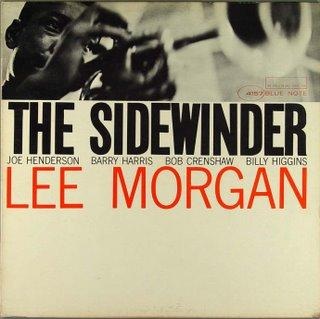 The Sidewinder is a composition written by Jazz Trumpeter and Composer Lee Morgan (1938-1972). He recorded the song in 1963 on Blue Note Records on the album of the same name. The composition became Morgan’s greatest commercial success, crossing over to the popular music market. His success and notoriety provided him with the opportunity to produce more albums. In 1964, Search for the New Land was released and reached the top twenty on the R & B charts. During his short career, he was a prolific songwriter. Bassist Ben Williams acknowledged Morgan’s legacy on his 2011 debut album, State of the Arts with the composition The Lee Morgan Story.
The Sidewinder is a composition written by Jazz Trumpeter and Composer Lee Morgan (1938-1972). He recorded the song in 1963 on Blue Note Records on the album of the same name. The composition became Morgan’s greatest commercial success, crossing over to the popular music market. His success and notoriety provided him with the opportunity to produce more albums. In 1964, Search for the New Land was released and reached the top twenty on the R & B charts. During his short career, he was a prolific songwriter. Bassist Ben Williams acknowledged Morgan’s legacy on his 2011 debut album, State of the Arts with the composition The Lee Morgan Story.
Edward Lee Morgan was born in Philadelphia. He was influenced by Clifford Brown. Morgan was a prodigy known for his individualized style. Growing up in the Tioga section of Philadelphia, he started trumpet lesson with a private instruct at fourteen and continued his music studies at Mastbaum High School. He began his professional career at the age of fifteen in Philadelphia as co-leader of a dance band with Bassist James “Spanky” DeBrest. He also attended workshops at the Music City Club where he had contact with Miles Davis and Clifford Brown, who became his mentor. At the age of 18, Morgan joined the Dizzy Gillespie Big Band and began recording for Blue in 1956. During the 1950’s, he recorded more than seven albums.
In 1958, he joined Art Blakey’s Jazz Messengers where he stayed until 1961. During the 1960’s, Morgan recorded more than twenty-three albums. He was also a featured sideman with jazz greats such as Hank Mobley, John Coltrane, Art Blakey, Wayne Shorter, Stanley Turrentine, Freddie Hubbard, Jackie McLean, Joe Henderson, McCoy Tyner, Lonnie Smith, Elvin Jones, Jack Wilson, Larry Young, Clifford Jordan and others. In the late 1960’s, Morgan’s band included Bill Harper, Bennie Maupin, Harold Mabern, Jymie Merritt, Mickey Roker and Freddie Waits. From 1970 to 1971, Morgan participated in the Jazz and People’s Movement, an activist group that protested American’s society neglect of jazz and jazz musicians, especially by the media.
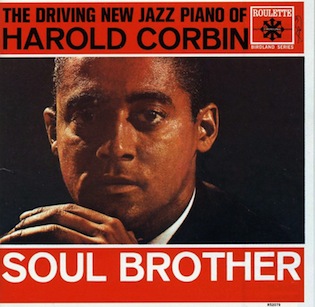 Jazz Pianist Edwin Harold Corbin (1933-1962) was born in Philadelphia, Pennsylvania. He began classical music study of the piano at the age of seven. Corbin attended the public schools where he played piano in the student orchestras at Gillespie Junior High School and Simon Gratz Senior High School. In 1949, Corbin had his premiere debut on his own Sunday local radio program. During his teen years, he was also the pianist and organist at the Faith Tabernacle Church. He received a scholarship and studied at the Philadelphia Musical Academy.
Jazz Pianist Edwin Harold Corbin (1933-1962) was born in Philadelphia, Pennsylvania. He began classical music study of the piano at the age of seven. Corbin attended the public schools where he played piano in the student orchestras at Gillespie Junior High School and Simon Gratz Senior High School. In 1949, Corbin had his premiere debut on his own Sunday local radio program. During his teen years, he was also the pianist and organist at the Faith Tabernacle Church. He received a scholarship and studied at the Philadelphia Musical Academy.
At the age of twenty, Corbin decided to move from classical music to popular music and formed his own combo. He worked as a city inspector, supplementing his income playing on the local scene until 1961. That year, Corbin composed and recorded “Soul Sister” which became a hit single and brought him recognition in the recording industry. His hit lead to a contract with the Roulette Recording Company and top booking engagements.
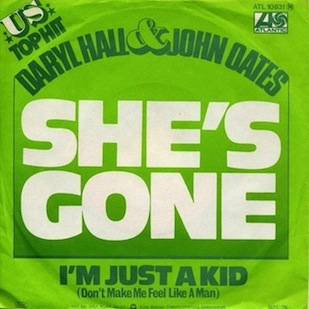 She’s Gone was written by Singer, Keyboardist, Guitarist, Songwriter and Producer Daryl Hall and Singer and Songwriter, Guitarist, and Producer John Oates known as Hall & Oates. The song was included on the duos album Abandoned Luncheonette in 1973. It was released as a single on Atlantic Records in 1974. In Philadelphia, She’s Gone was a big hit. It peaked at number 60 on the Billboard Hot 100 Chart.
She’s Gone was written by Singer, Keyboardist, Guitarist, Songwriter and Producer Daryl Hall and Singer and Songwriter, Guitarist, and Producer John Oates known as Hall & Oates. The song was included on the duos album Abandoned Luncheonette in 1973. It was released as a single on Atlantic Records in 1974. In Philadelphia, She’s Gone was a big hit. It peaked at number 60 on the Billboard Hot 100 Chart.
Born in Pottstown, Pennsylvania in 1946, Hall’s parents had backgrounds in music. Hall started recording as a student at Owen J. Roberts High School. Upon graduation in 1965, he attended Temple University, majoring in music. He worked with Kenny Gamble and Leon Huff as an artist and session musician. During the 1960’s, his group the Temptones performed at the Uptown Theater where he had access to artists such as Smokey Robinson and the Temptations. In 1967, Hall met Oates, an undergraduate at Temple University, they worked together for more than forty years.
Born in New York City in 1949, Oates was raised in North Wales, Pennsylvania. After meeting Daryl Hall, the duo signed with Atlantic Records. They went on to record 21 albums. They participated in the original Live Aid concert and We Are the World charity recording.
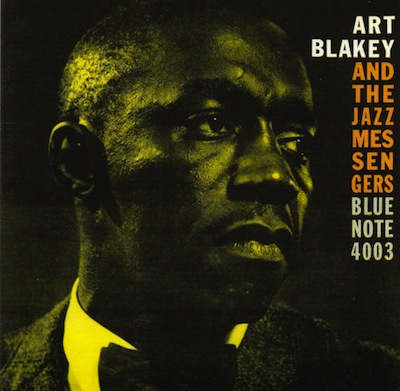 Blues March was written by Jazz Saxophonist, Composer, Producer and Arranger Benny Golson. His composition was recorded on Art Blakey & the Jazz Messengers album Moanin released on Blue Note Records in 1958. It was the first song that Golson wrote for the Messengers. It became one of the groups greatest hits and a signature piece. At Art Blakey’s Memorial the last composition played by musicians was Blues March. On the album, Golson’s other recorded compositions included Are You Real and Along Came Betty.
Blues March was written by Jazz Saxophonist, Composer, Producer and Arranger Benny Golson. His composition was recorded on Art Blakey & the Jazz Messengers album Moanin released on Blue Note Records in 1958. It was the first song that Golson wrote for the Messengers. It became one of the groups greatest hits and a signature piece. At Art Blakey’s Memorial the last composition played by musicians was Blues March. On the album, Golson’s other recorded compositions included Are You Real and Along Came Betty.
Born in Philadelphia in 1929, Golson started with piano and moved to tenor saxophone. During his teenage years, he sat in on jam sessions with John Coltrane, Jimmy Heath, Philly Joe Jones, Percy Heath, Red Garland, Red Rodney and others on Columbia Avenue in North Philadelphia. In 1950 after graduating from Howard University, he played in Bull Moose Jackson’s R & B band where he met Tadd Damerson. During the 1950’s, Golson also played Earl Bostic, Lionel Hampton, Johnny Hodges and Dizzy Gillespie.
In 1957, Golson composed I Remember Clifford in remembrance of his friend, Clifford Brown. He became a prolific composer of more than 300 compositions including songs such as the popular Killer Joe. In 1960, he formed The Jazztet with Art Farmer and Chris Fuller. During the sixties, Golson recorded and composed for Ray Charles, Benny Goodman and others. In 1967, he moved to Hollywood where he scored for television and film, which included Mission Impossible, Mannix, Mod Squad, It Takes A Thief, M-A-S-H, Room 222, The Partridge Family and others. He wrote arrangements for Lou Rawls, Eartha Kitt, Connie Francis, Ella Fitzgerald, Nancy Wilson, Sammy Davis Jr., Diana Ross and numerous others.
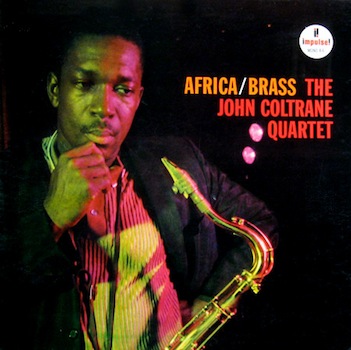 Africa was composed by Jazz Saxophonist and Composer John Coltrane (1926-1967), appearing on his album Africa/Brass recorded on Impulse! Records in 1961. The album was his first on the Impulse! label. The expanded personnel for the session included Booker Little, Britt Woodman, Carl Bowman, Julius Watkins, Donald Corrado, Bob Northern, Robert Swissbel, Bill Barber, Eric Dolphy, Pat Patrick, McCoy Tyner, Reggie Workman, Art Davis, Elvin Jones and Coltrane. This was a period when Coltrane was influenced by African recordings that he was listening to explore rhythms and format such as repetition.
Africa was composed by Jazz Saxophonist and Composer John Coltrane (1926-1967), appearing on his album Africa/Brass recorded on Impulse! Records in 1961. The album was his first on the Impulse! label. The expanded personnel for the session included Booker Little, Britt Woodman, Carl Bowman, Julius Watkins, Donald Corrado, Bob Northern, Robert Swissbel, Bill Barber, Eric Dolphy, Pat Patrick, McCoy Tyner, Reggie Workman, Art Davis, Elvin Jones and Coltrane. This was a period when Coltrane was influenced by African recordings that he was listening to explore rhythms and format such as repetition.
In 1966 while on vacation in Philadelphia, Coltrane performed at the benefit for the Black People’s Unity Movement at Church of the Advocate, 18th and Diamond Streets. At that time, he was passionate about his beliefs that the course of Black music was moving towards Africa. He stated that, “In music it is important that we know ourselves.” Coltrane was interested in spiritual ideas from around the world. He helped to create Black art-conscious music. He was studying more traditional African music and planned to visit Africa to know himself. In 1967, A.B. Spellman wrote, “A man like Coltrane was playing about something consciously black, no matter how abstract his formulation may be.”
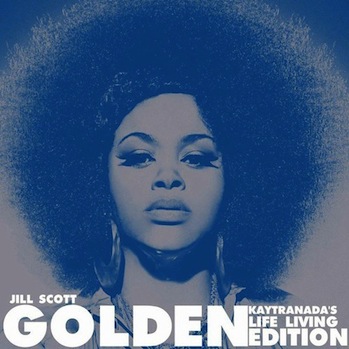 Golden was co-written by Singer, Songwriter, Poet and Actress Jill Scott and Producer Anthony Bell. The song was the first single release by Scott from her second album Beautifully Human: Words and Sounds, Volume 2 in 2004. The song was 31 on US Hot R & B Chart and 59 on the UK Singles Chart. Golden was also featured in the videogame soundtrack of Grand Theft Auto: IV.
Golden was co-written by Singer, Songwriter, Poet and Actress Jill Scott and Producer Anthony Bell. The song was the first single release by Scott from her second album Beautifully Human: Words and Sounds, Volume 2 in 2004. The song was 31 on US Hot R & B Chart and 59 on the UK Singles Chart. Golden was also featured in the videogame soundtrack of Grand Theft Auto: IV.
Born in North Philadelphia, Pennsylvania in 1972, Scott graduated from Girls High School and attended Temple University where she studied secondary education. She decided to pursue theater and earned a position on the Canadian case of Rent. She started poetry readings, where she became friends with Jeffrey A. Townes known as DJ Jazzy Jeff, who helped with her musical career. Jazzy Jeff and Ahmir “Questlove” Thompson encouraged her to write songs. You Got Me was performed by Erykah Badu and the Roots which won a Grammy. Scott was the first artist to sign with Steve McKeever’s label, Hidden Beach Recordings. In 2000, she released her debut album Who Is Jill Scott? Words and Sounds Volume 1. That same year, Scott began pursuing a career in acting in 2000, leading to her acquiring roles on television and in film. She established the Blues Babe Foundation with an initial donation of $100,000, named after your grandmother Blue Babe, to give financial assistance to young minority university students between the ages of 16 and 21, residing in Philadelphia, Camden, New Jersey, and the greater Delaware Valley.
Philadelphia Jazz Project is a sponsored project of the Painted Bride Art Center, with funding provided by The Wyncote Foundation.










